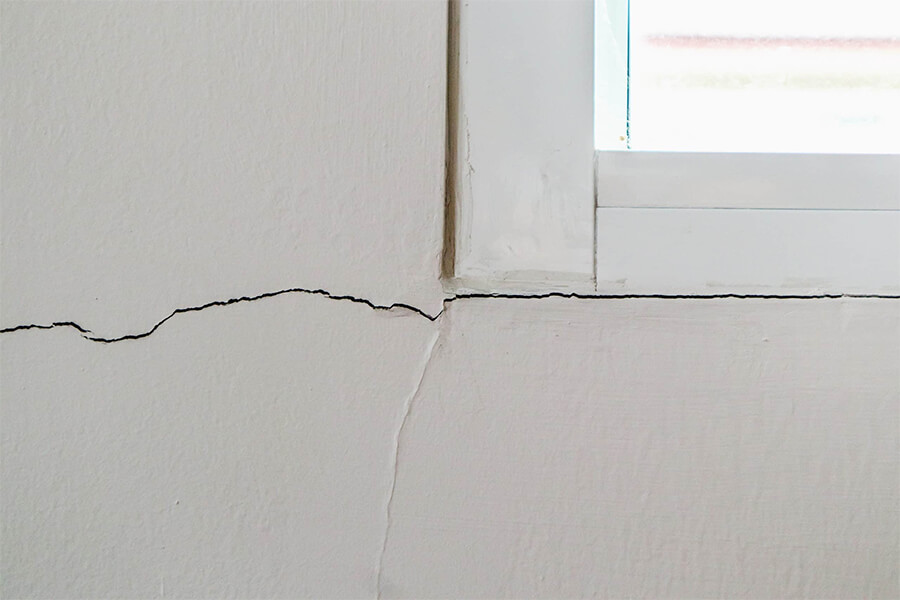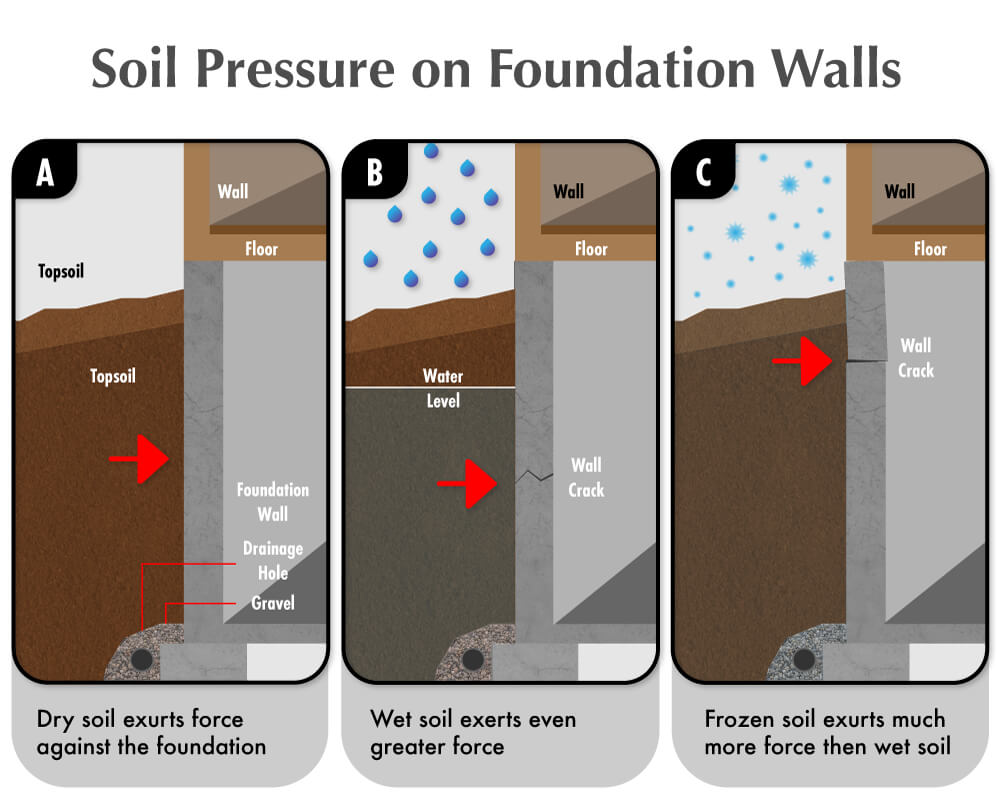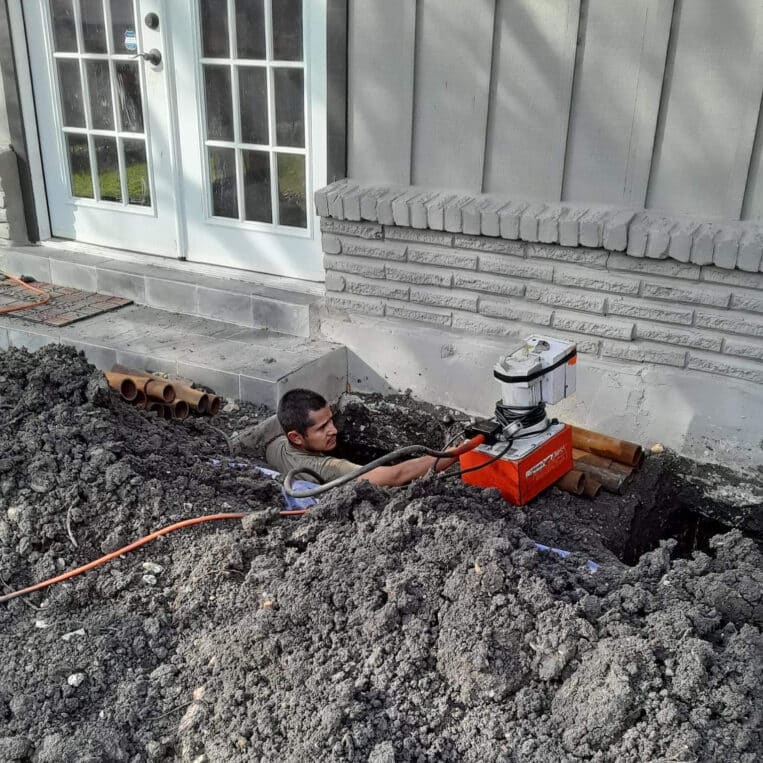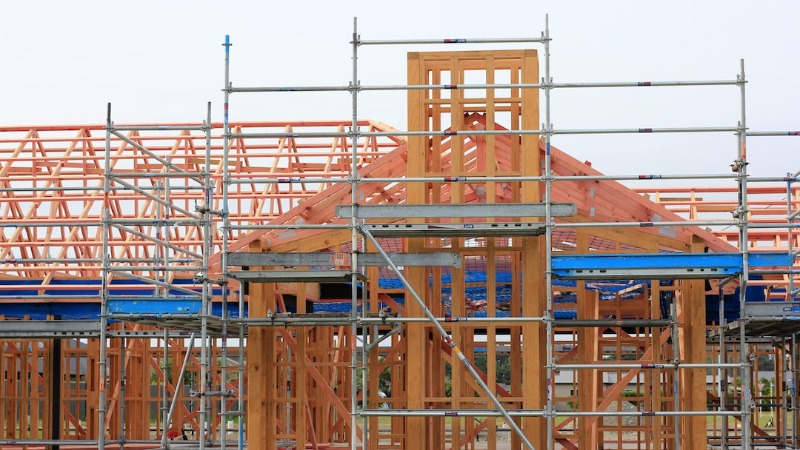Understanding Foundation Issues in Texas: How to Spot Problems, Find Solutions, and Hold Builders Accountable
Your home’s foundation is more than just a slab of concrete—it’s the support system for everything above it. For Texas homeowners, where clay-rich soil and unpredictable weather are part of daily life, understanding the signs of foundation trouble can save you stress and money. It’s also important to remember that a properly constructed foundation for a new home should withstand these challenges. If your home is experiencing foundation issues early on, it might not be just bad luck—the builder could be responsible.
Cracks in Your Foundation: What Do They Mean?
Cracks are one of the most obvious signs that something may be wrong with your foundation. But not all cracks are created equal:
- Vertical cracks are often harmless and result from minor settling.
- Horizontal cracks can indicate significant pressure on your foundation, which may require immediate attention.
- Stair-step cracks in brick or masonry are a warning sign of uneven foundation settling.
- Hairline cracks might seem minor but should be monitored, as they can worsen over time.
Properly built foundations are designed to handle Texas’s challenging soil conditions. If cracks are appearing in a relatively new home, it’s worth asking why. Did the builder account for the expansive soils in your area? A structural engineer can help determine if construction shortcuts are at play.
If cracks grow wider or new ones appear, don’t just patch them and move on. Addressing the root cause—whether it’s improper construction or soil movement—is the only way to ensure long-term stability.
Wall and Floor Issues: Foundation or Flaw?
Cracks aren’t just limited to your foundation. If you notice cracks in your walls or uneven floors, these may be signs your foundation is shifting:

- Wall cracks often appear around windows or doors and can grow if the foundation continues to move.
- Floor cracks, along with sagging or sloping floors, point to settlement or heaving beneath the foundation.
New homes should not have uneven floors or significant cracks in the walls. Builders are required to follow strict codes to ensure the foundation is properly supported. If these problems show up early in your home’s life, it might be time to consult a professional who can evaluate whether the builder failed to meet these standards.
If your floors are starting to sag or slope, you don’t have to live with it. Modern repair techniques like leveling slabs or reinforcing support beams can restore your floors to their original condition, but identifying the cause first is critical.
Misaligned Doors and Windows: A Subtle Warning
Do you have doors that stick or windows that don’t quite close right? These issues can seem like minor inconveniences, but they often point to deeper problems:

- Sticking doors or jammed doors result from shifting frames, which are directly tied to foundation movement.
- Gaps around windows or misaligned frames may mean the foundation is no longer level.
Doors and windows should operate smoothly in a newly built home. If they don’t, it raises the question of whether the foundation was properly constructed. Builders are responsible for ensuring the home’s structure is stable from the start, and recurring alignment issues may be a sign of negligence.
Instead of sanding a sticky door or filling gaps with caulk, consider consulting a foundation specialist. They can determine whether these issues are cosmetic or indicative of a deeper problem.
What Causes Foundation Movement?
In Texas, the unique properties of the soil are a major factor in foundation movement. Foundation settlement happens when the soil shrinks during dry weather. Heaving or uplifting occurs when excess moisture makes the soil expand. Weather patterns that swing from drought to heavy rain compound these issues, putting stress on even the most well-built foundations.

A home built with proper soil preparation and drainage should withstand these natural cycles. If your foundation is shifting, it’s worth investigating whether your builder accounted for these conditions during construction.
Fixing the Problem: There’s Always Hope
Discovering foundation damage can be overwhelming, but the good news is that it’s almost always fixable. Whether it’s cracks, sloping floors, or sticking doors, modern foundation repair methods can restore your home’s stability. And if your foundation problems are due to poor construction, you may not have to foot the bill—your builder might be responsible.

When it comes to repairing foundation issues, here are the most common solutions that foundation experts use:
- Foundation leveling stabilizes or lifts your foundation back to its original position. Techniques include piering, where steel or concrete piers are driven into stable soil layers, and slabjacking, where grout is pumped under the foundation to fill voids and lift it.
- Cracks, especially minor ones, can be sealed with epoxy, while more serious cracks may require reinforcement with steel rods or carbon fiber strips.
- Sloping or uneven floors can be repaired by adjusting support beams or re-leveling the foundation slab.
Improving drainage around your home and addressing soil stability issues are also common parts of the remediation process to prevent future problems.
If your foundation issues stem from improper construction, document everything. Photos, detailed notes, and expert opinions will be crucial if you need to pursue repairs through your builder. Builders are often responsible for addressing structural defects, especially in newer homes.
Preventing Foundation Damage
While Texas soil is unpredictable, there are steps you can take to reduce the risk of foundation issues. Maintaining consistent moisture levels around your home can help stabilize the soil, while ensuring proper drainage keeps water from pooling near your foundation. Regular inspections are another smart step, allowing you to catch small problems before they become big ones.
For new homeowners, carefully review your builder’s warranty and construction documentation. If problems arise, knowing your rights is the first step in holding them accountable.
You’re Not Alone
Foundation issues in a newly constructed home should not be treated as inevitable. Builders have a responsibility to design and construct homes that can handle Texas’s challenging environment. If your foundation problems are tied to poor workmanship or inadequate preparation, you may be entitled to have the builder address these issues—or even provide compensation for repairs.
As Your Texas Foundation Attorney, we’re here to guide you through the process. From evaluating potential construction defects to connecting you with trusted repair professionals, we’ll help you protect your home and your investment.
If you’re noticing cracks, uneven floors, or misaligned doors, don’t wait for the problem to get worse. Contact us today at 512-982-1510 to explore your options and get your home back on solid ground. There’s always hope, and we’re here to help you find it.











